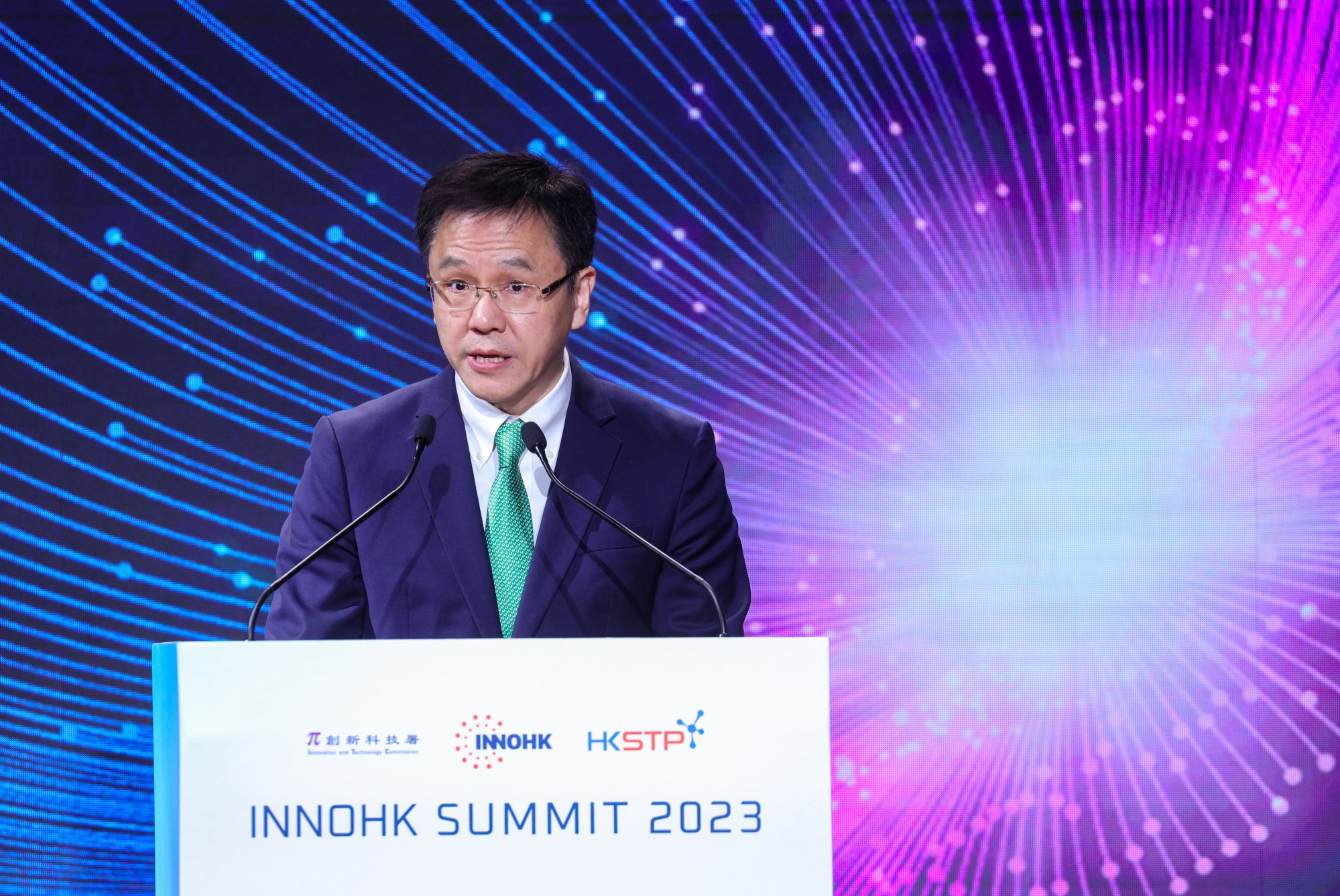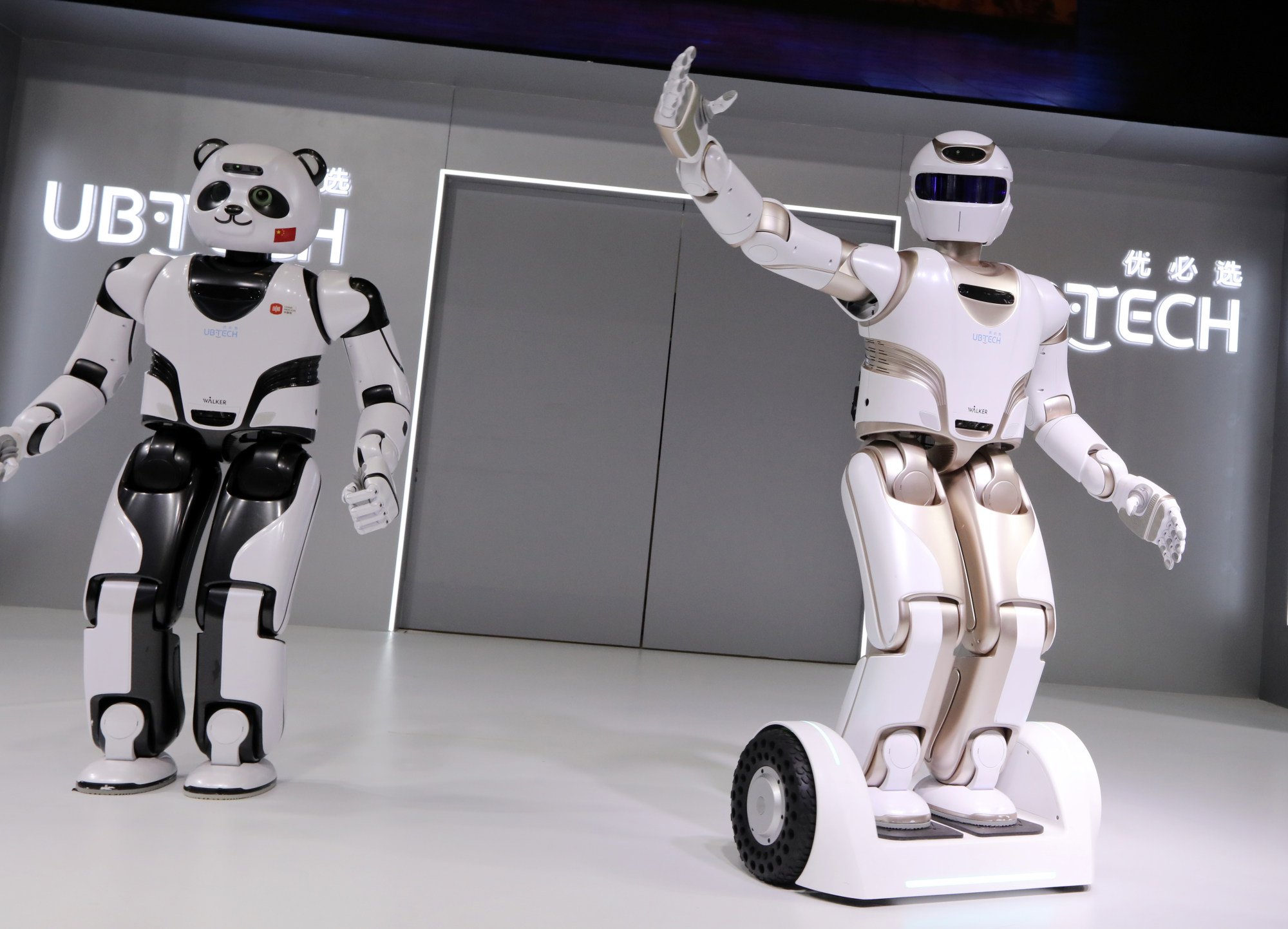
Hong Kong may welcome more top European, US and Asian innovators in early 2024, technology minister says
- Technology minister Sun Dong says government goal of luring 100 top enterprises to Hong Kong in five-year window proving ‘immensely challenging’
- ‘We have recently been in discussions with several companies, not necessarily limited to Europe and the US, but also some well-known Asian companies,’ he adds
Hong Kong may welcome more leading companies from Europe, America and the rest of Asia by early 2024, the city’s technology chief has said, pledging that authorities will also help turn local start-ups into industry giants.
Secretary for Innovation, Technology and Industry Sun Dong on Sunday said that fulfilling the government’s goal of luring 100 strategic companies to set up shop in Hong Kong over a five-year window was “immensely challenging”.
He noted that about 30 companies had committed to establishing themselves in the city, with most coming from mainland China.

“We have recently been in discussions with several companies, not necessarily limited to Europe and the US, but also some well-known Asian companies,” he told a TV programme, but stopped short of naming the businesses.
“It is possible that we will see the establishment of these renowned overseas companies in Hong Kong as early as the beginning of [2024].”
In 2023, Hong Kong had 9,039 companies with head offices located outside the city, a 0.6 per cent increase compared with 8,978 in the previous year. The latest count was in line with the pre-coronavirus level of 9,040 companies recorded in 2019.
Mainland companies accounted for the highest number of firms in 2023, reaching 2,177. Japan followed with 1,403 companies, while the United States accounted for 1,273, Britain for 641 and Singapore for 477.
US reducing reliance on China ‘forces Hong Kong exporters to sever some ties’
The local economy in 2023, meanwhile, suffered domestic and external shocks, with sluggish growth across the border and possible cuts to US interest rates contributing to an uncertain outlook.
Sun also played up the proportion of mainland companies planning to establish a presence in Hong Kong, noting firms from across the border already enjoyed proximity and close business ties with the city.
A number of leading mainland companies have recently set up operations in the city, including: Contemporary Amperex Technology, the world’s biggest maker of batteries for electric vehicles; Horizon Robotics, an artificial intelligence chip designer; and the country’s largest clinical research services firm Hangzhou Tigermed Consulting, which is listed in Shenzhen.
The Innovation, Technology and Industry Bureau estimated that those companies, among other leading firms from across the border, would invest nearly HK$30 billion and create more than 7,000 jobs.
900 technology companies drawn to Hong Kong amid city’s innovation drive
Many of the companies also had strong international backgrounds, such as microelectronics firm J2 Semiconductor, which employed talent from the mainland, Hong Kong, Taiwan and the United States, he added.
UBTech Robotics, the mainland’s biggest manufacturer of educational and humanoid robots, and UK-based global pharmaceutical firm AstraZeneca are also among the latest companies that have pledged to set up shop in Hong Kong.
“It is a good thing that mainland companies are coming in first, as they will contribute to a more vibrant innovation and technology ecosystem in Hong Kong, which will attract global attention and enhance confidence among foreign enterprises,” Sun said.
Asked whether the influx of largely research and development-focused companies could hinder the city’s long-term “re-industrialisation” drive, Sun said some of the inbound businesses planned to set up pilot production lines to help generate revenue.
The technology minister also touched on government efforts to support local start-ups and said they were considered “the hope for Hong Kong’s future high-quality industrial development”.
“Ultimately, my hope is that in five or 10 years, these companies will become giants in Hong Kong, just like Huawei, Tencent and BYD in Shenzhen today,” he said.

In 2023, the city was home to a record 4,257 start-ups, which was 272 more than the year before and a 34 per cent surge from the number recorded in 2019.
The technology minister also weighed in on a number of recent hacking incidents involving public organisations.
Cyberport and the Consumer Council were both hacking victims in 2023, while the Leisure and Cultural Services Department’s new HK$500 million venue-booking system also experienced technical failures and a computer glitch affected voter participation during the district council election.
Sun said that apart from the election incident, most of the issues were related to technical malfunctions and workflow, noting authorities had requested that any system roll-outs in future should include stress tests.
“If a system is designed to accommodate 1,000 users, we are not only aiming to ensure it can handle tens of thousands or even multiples of that, but also a ‘bottom line mindset’ is needed to understand the conditions under which the system may fail to function,” Sun said.
Record 73% of Hong Kong companies hit by cyberattacks in past year: watchdog poll
He added that stress tests would be conducted by independent third parties accredited by the Office of the Government Chief Information Officer (OGCIO).
“The final approval rests with the OGCIO, meaning it acts as the gatekeeper,” he said. “Systems can only be implemented successfully if it gives the green light. I can tell you that just two weeks ago, the OGCIO rejected the launch of an electronic service.”
He cited the example of Singapore, which he said initially faced a similar problem of different departments launching their own systems, but had now established a robust IT department to unify its approach.
The minister said the chief executive’s policy address put forward the merging of the OGCIO and the Efficiency Office to become the Digital Policy Office, which would be led by a commissioner with the streamlining of governance structures as one of its objectives.


